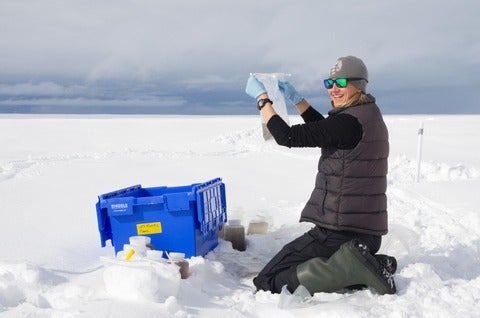Monday, January 25, 2021
The Dark Zone of Greenland: How algae fuelled by phosphorus contributes to ice sheet melting
Greenland is the world’s largest “non-continental” island, and about 80 per cent of this island is covered by the Greenland Ice Sheet. In recent years, however, the melting of this ice sheet has accelerated, leading to an increased contribution to rising sea levels.
